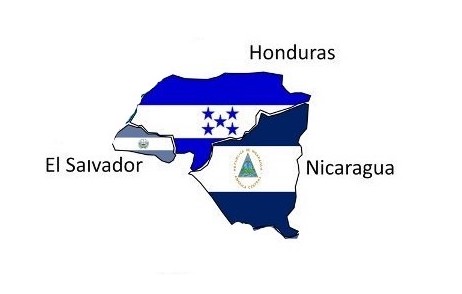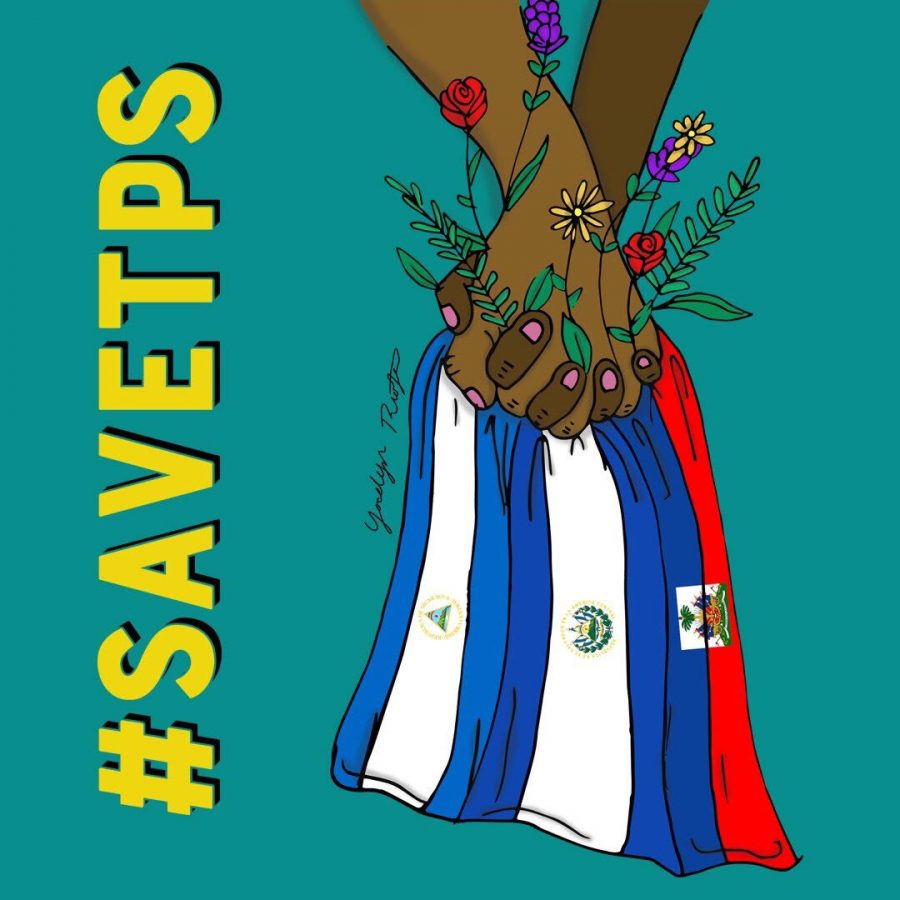The United States terminates TPS for El Salvador
Latinx designer, Yocelyn Riojas raises awareness through art.
Over 300,000 people who are protected under TPS–Temporary Protected Status– could lose their legal status in the United States if it were to be terminated, as acting Secretary of Homeland Security, Elaine Duke announced on November 2, 2017.
The United States Congress created TPS during the 1990s, which was designated to countries that faced extreme environmental disasters, earthquakes, hurricanes, floods, and political conflict that makes it unsafe for people, and conditions that make it unsafe for someone to return to their country. Once a country is given TPS, its nationals who reside in the United States benefit from protection against deportation and receive authorization to work.
Countries that are currently designated TPS are the following ten countries: El Salvador, Honduras, Haiti, Nicaragua, Nepal, Somalia, Sudan, South Sudan, Syria, and Yemen. Central American countries were granted TPS due to natural disasters, while Middle Eastern and African countries were granted TPS due to civil conflict. However, TPS does not guarantee permanent protection and the United States can terminate TPS to a country if it is no longer under the three qualifications. In fact, several countries are in danger of losing TPS designation from the United States.

Countries in Central America that were designated TPS.
On January 8, 2018, Secretary of Homeland Security, Kirstjen M. Nielsen, announced that they have decided to terminate TPS designation for El Salvador. The White House believes current conditions in the country are no longer justifiable as a means to maintain TPS due to a massive earthquake that hit the country in 2001.
The decision to terminate TPS designation for El Salvador will affect about 60 percent of TPS recipients. Around 200,000 Salvadorans and their families will be affected by the termination of TPS. The United States has delayed their termination decision for 18 months. In other words, Salvadorans have until September of 2019 to find another way to apply for legal residency. For many of them, it means going back to their country, which can divide families.
Although the White House announced the termination for El Salvador, there are a few things they can still do in the meantime. Although the White House has decided to terminate TPS, a lot can happen in a few months. Lawyer Christian Connolly from Law Office Bruce C. Bridgman in Orange County states, “If the people living in California are married or have a child over 21 born in the United States, contact an immigration lawyer.” Connolly is an expert in immigration law who can help families who have further questions about what they can do if they currently have TPS.
“They can call their state representatives and tell them how they feel. Anytime there’s an opportunity to vote, show up to the polls,” Connolly states. You can also contact Lou Correa, California’s representative, through his office number, 714-559-6190, or you can visit his website and send him a letter, or visit his office located in Santa Ana.
For more information: https://www.uscis.gov/humanitarian/temporary-protected-status

Fun Facts:
Played bass for five years.
I write poetry as a hobby.
Star Wars enthusiast.





































